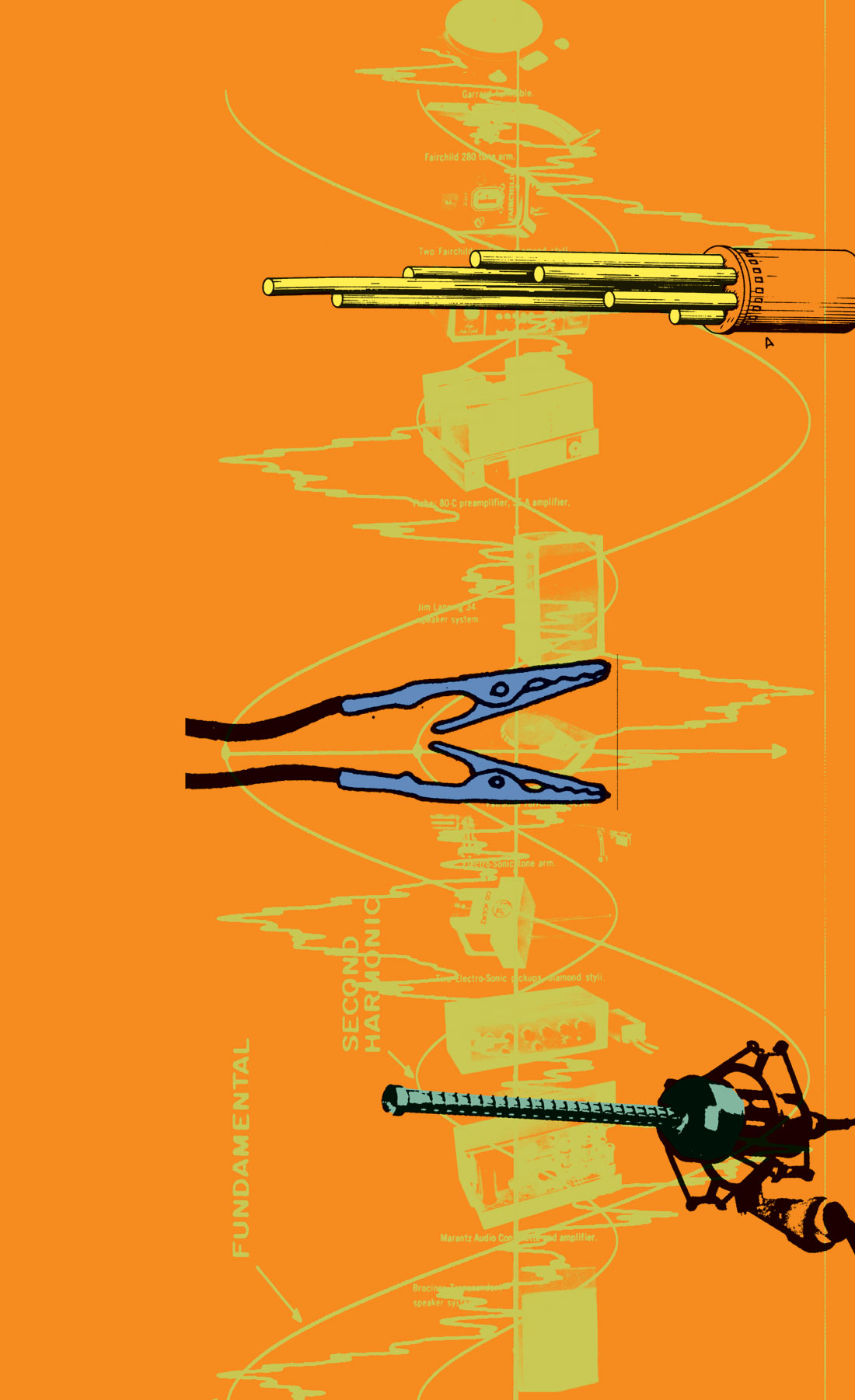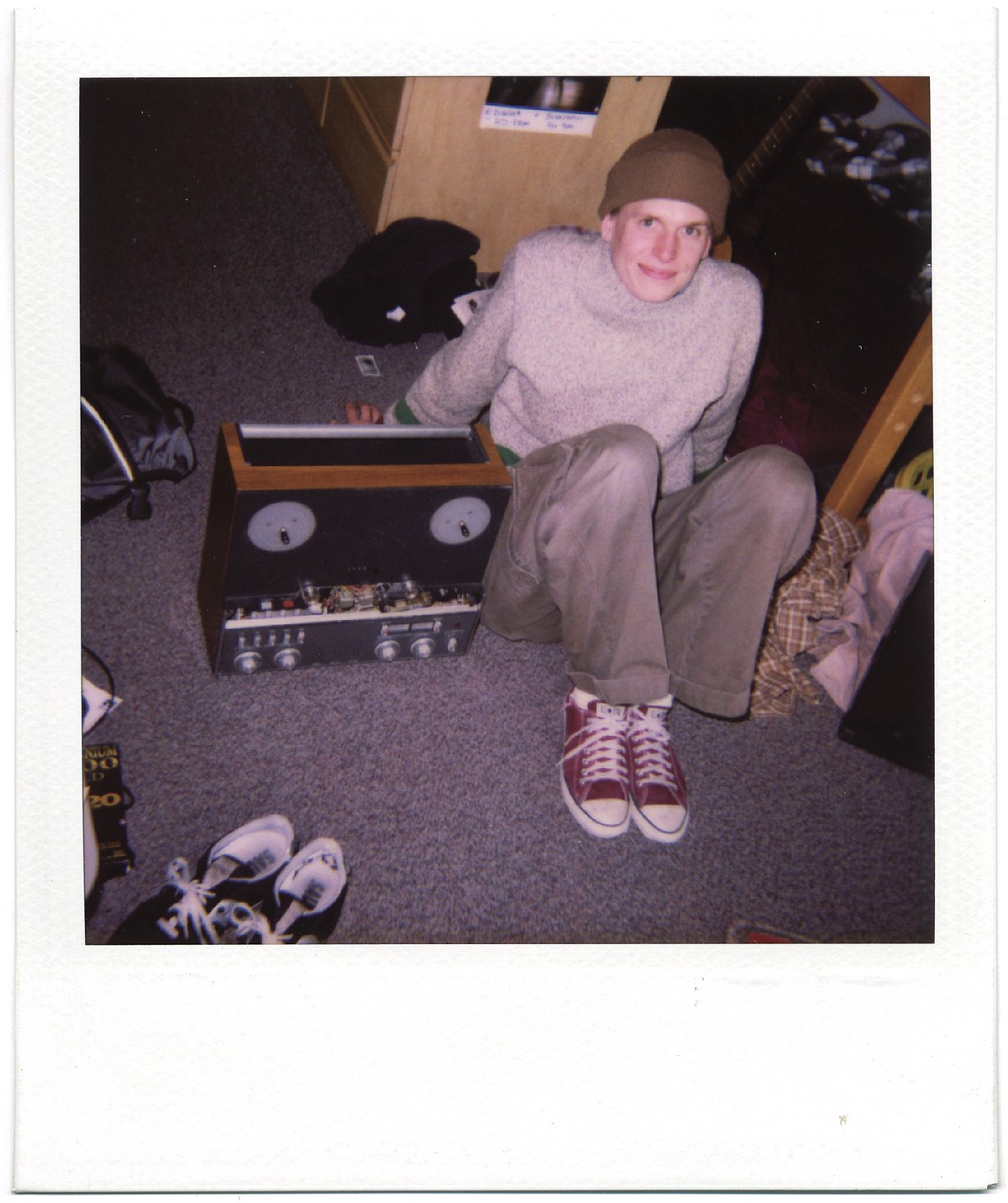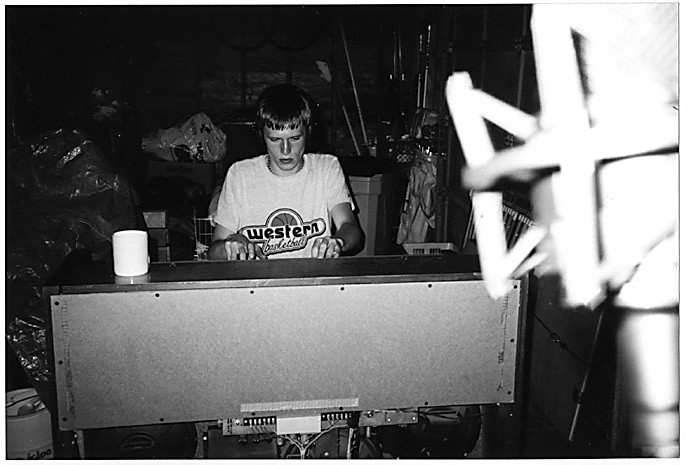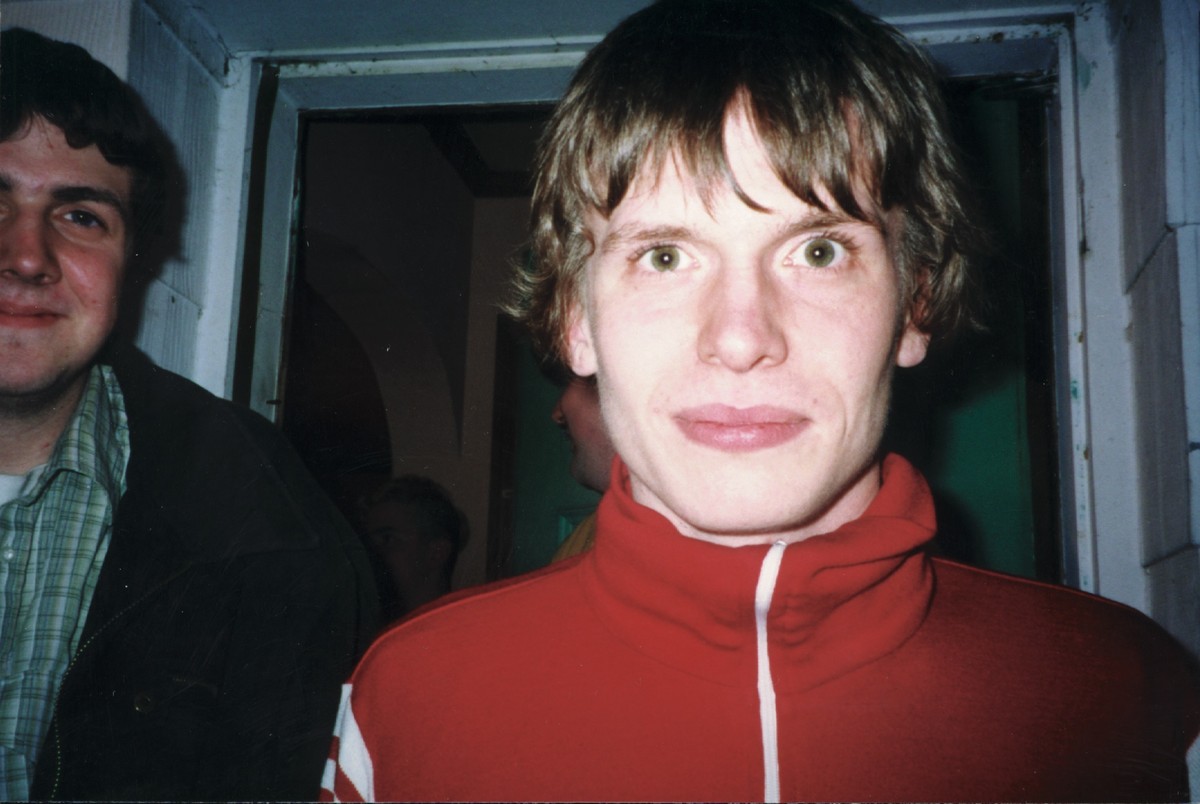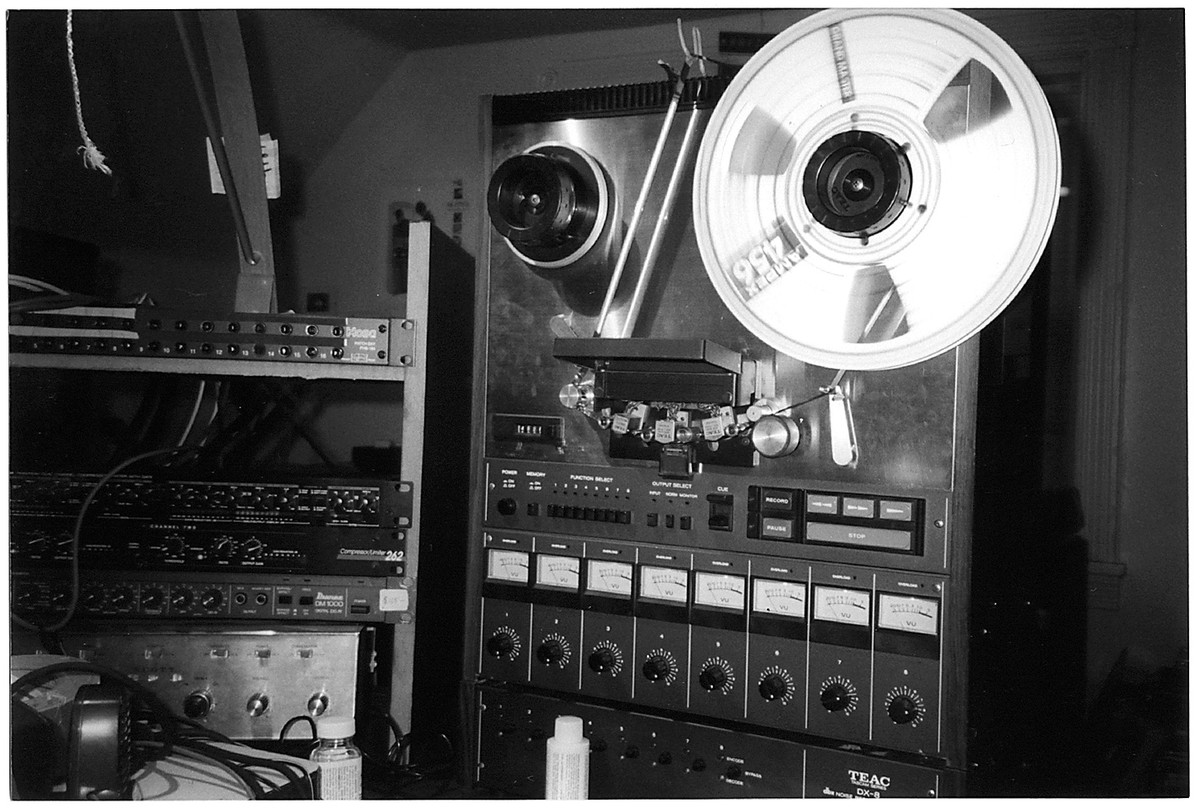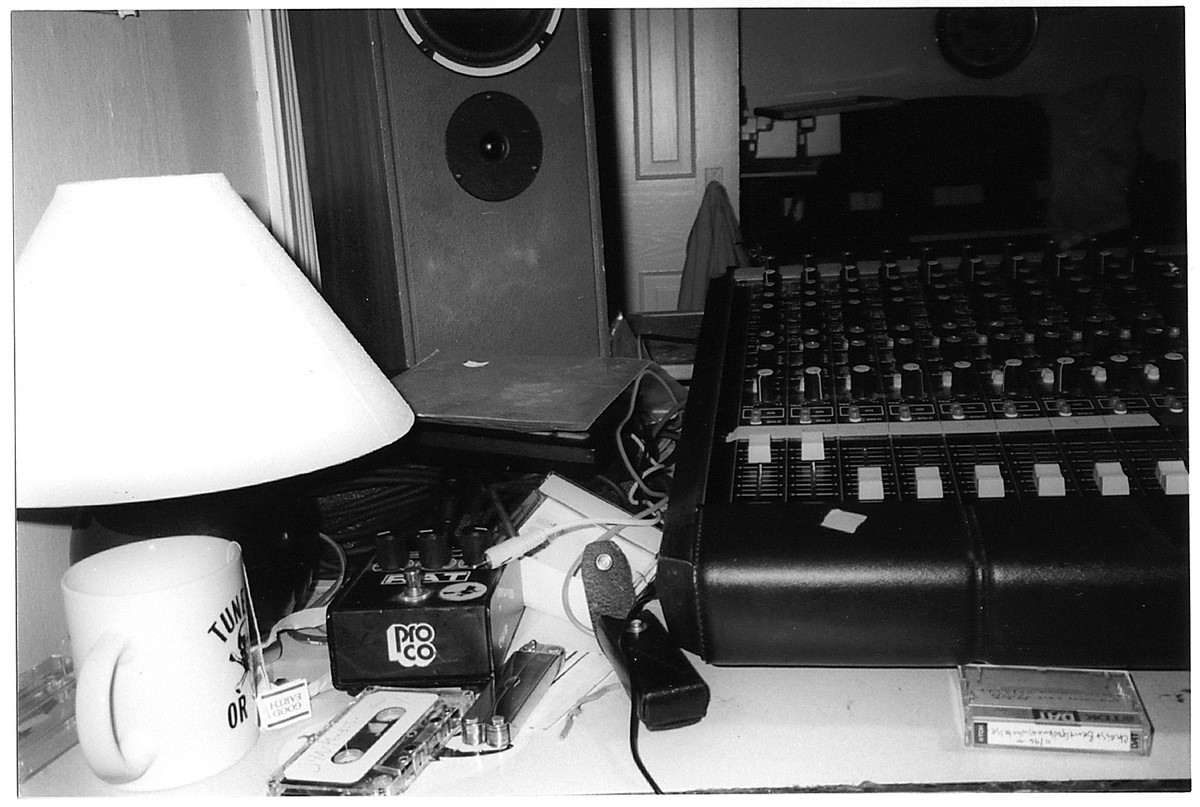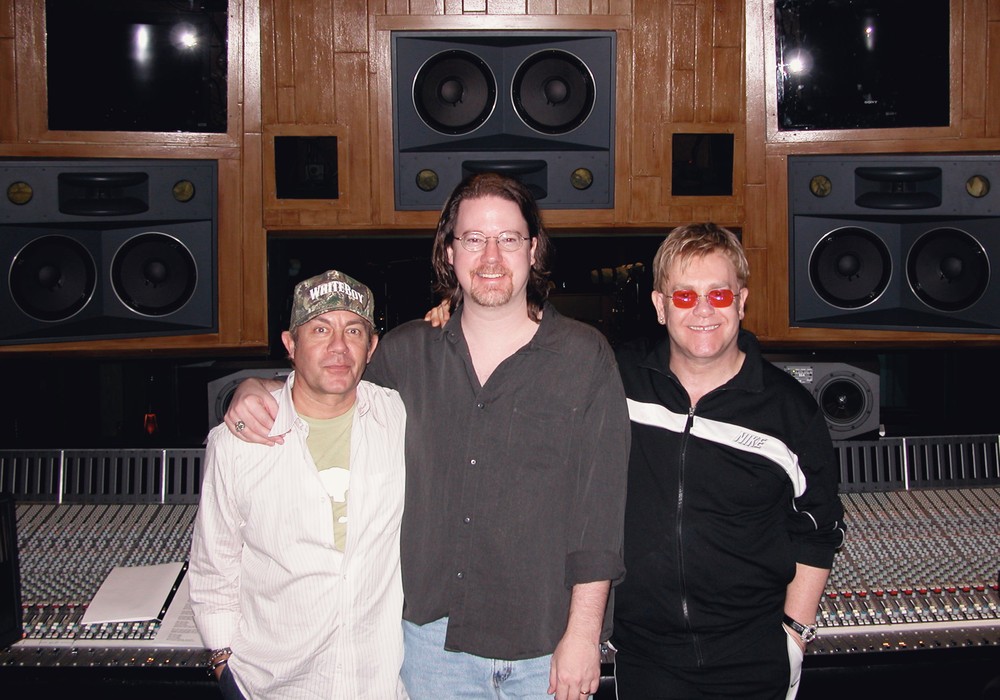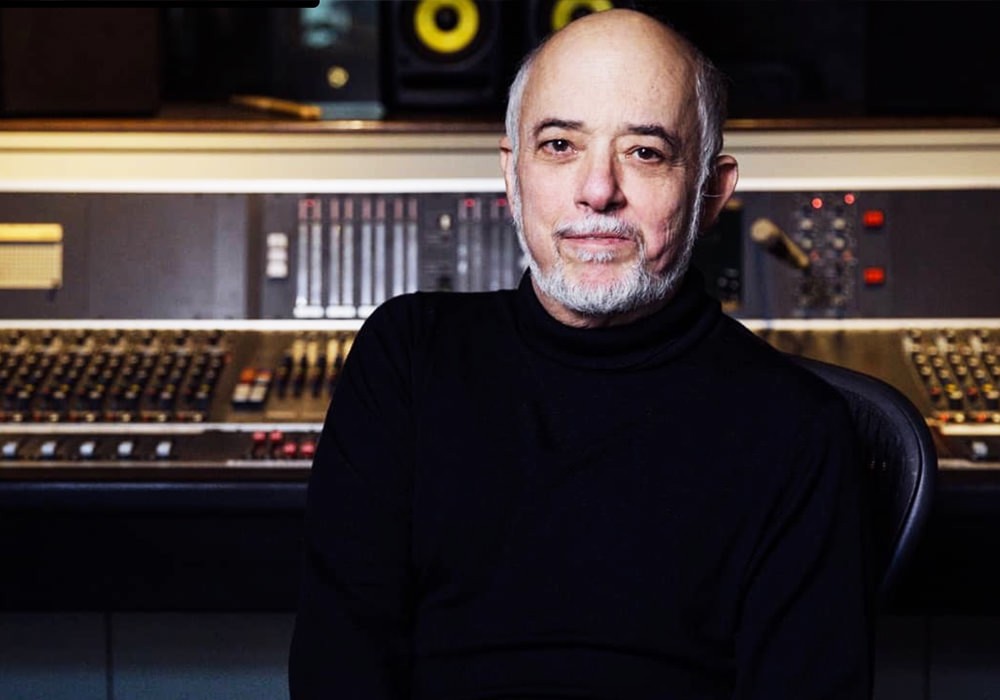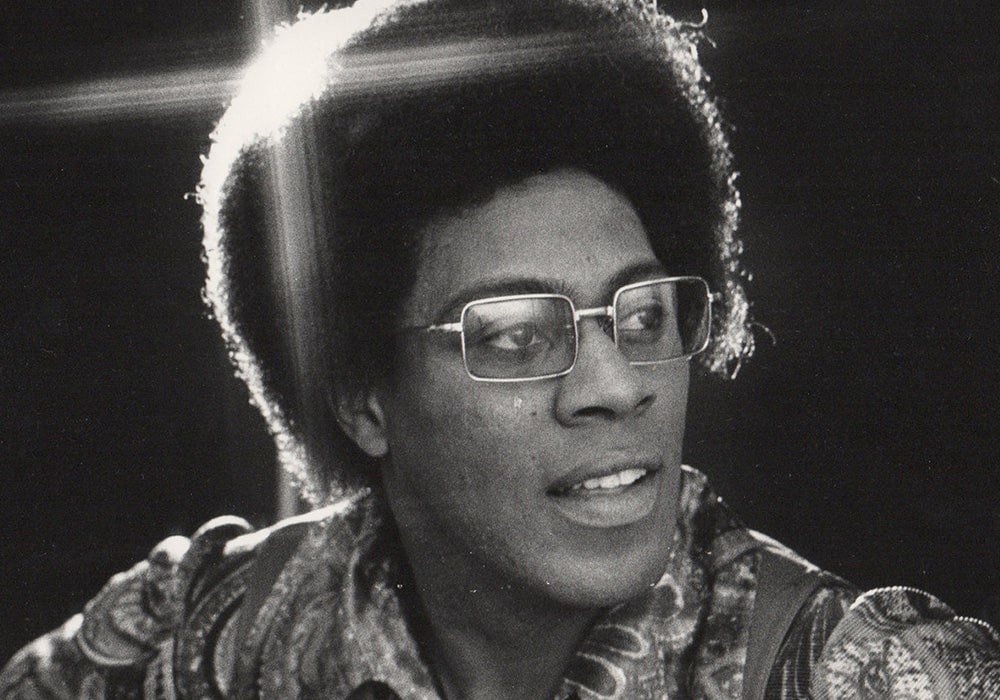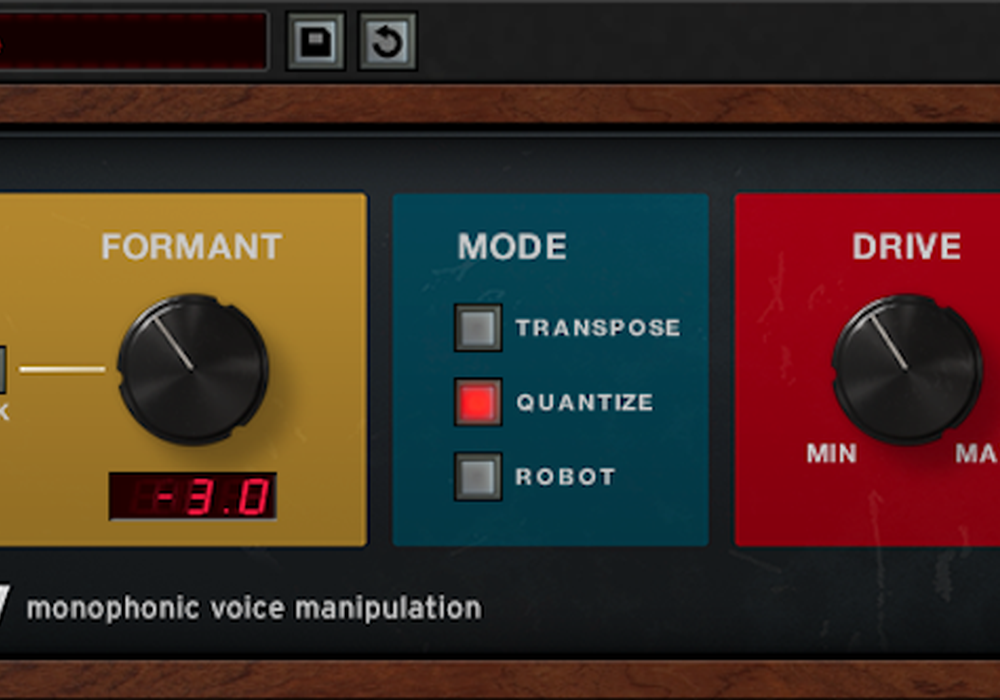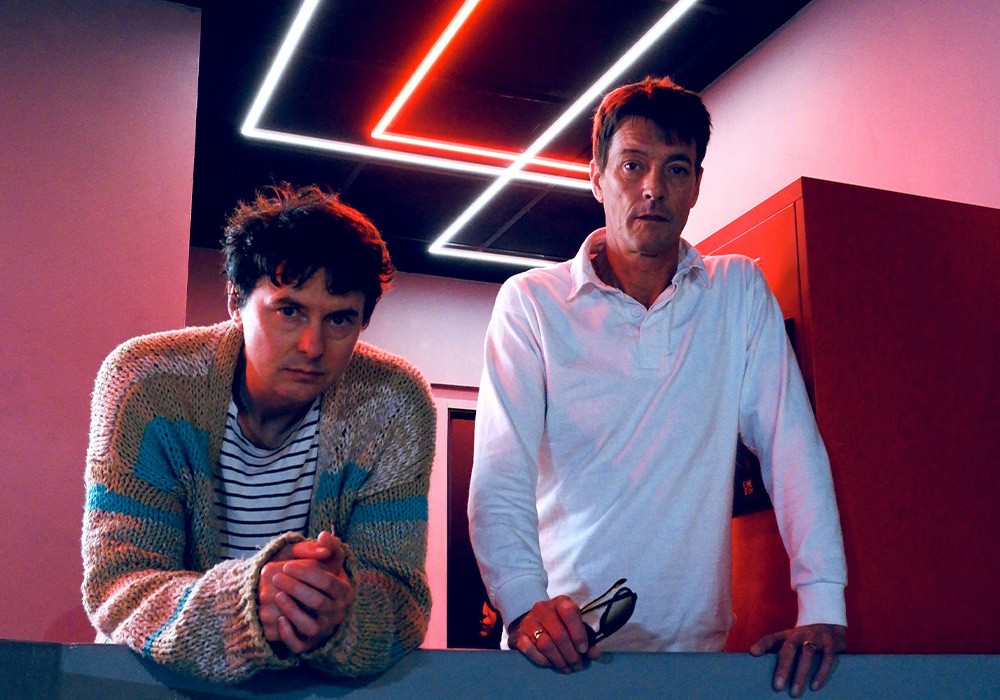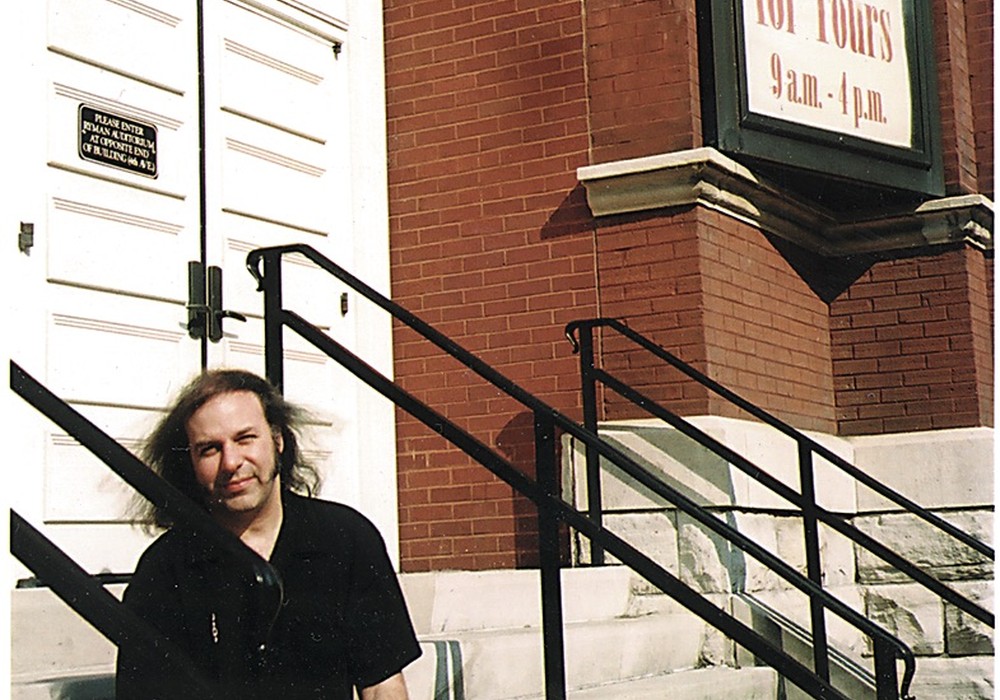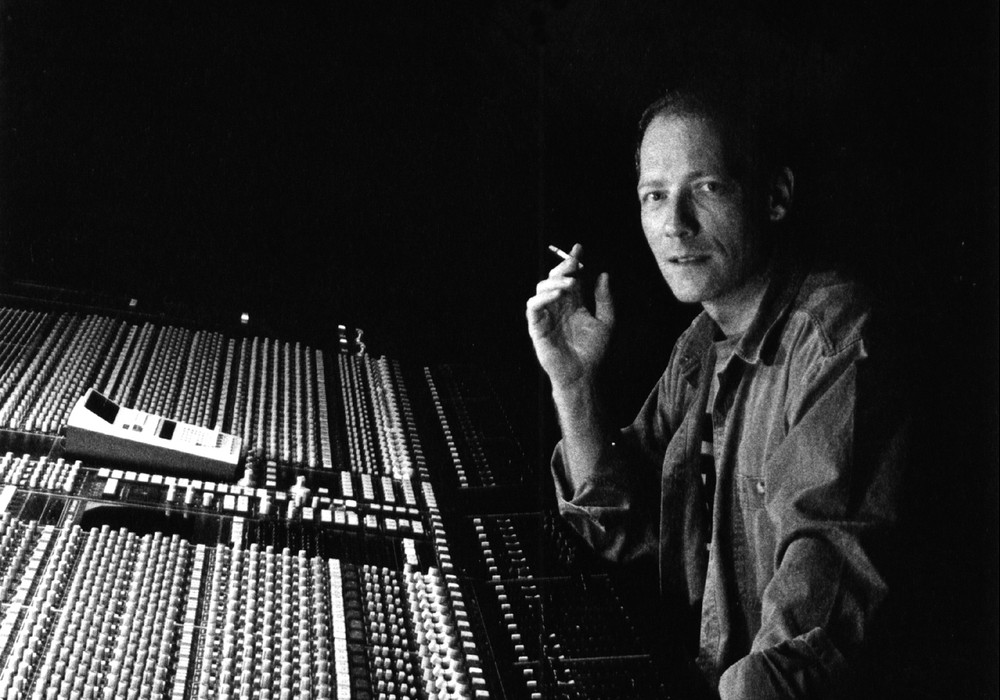Death Cab For Cutie attacked me when I heard their first album, Something About Airplanes. I was floored by the melodies, and the overall sound of the entire album. Their first album was constantly in my CD player for five months; I was afraid of wearing it out. The best part about the album was that it was recorded by band member, and all around nice guy, Chris Walla. When their latest album, We Have The Facts and We're Voting Yes, came out I sacrificed food for a couple of days to be able to get it ASAP. Through an almost constant bugging through email I was able to get to meet the band and from there I arranged for Chris and I to sit down in a Seattle coffeehouse and talk shop. Afterwards I gave him an old Revox I had and he gave me a TEAC M-2A mixing board. I picked Chris' brain and realized that the mysterious sounds I heard on the new album weren't so mysterious.
When did your interest in recording start?
I remember being six years old and listening to Sgt. Pepper's with a pair of headphones going, "Oh there's something over here and something on this side. Why is that?" It used to drive my mom crazy 'cause I would balance everything to the left and listen to just the horns like in "Good Morning Good Morning" or something. I didn't know it at that time, but that's when I got interested in recording. Then in high school I got a little further into it. I've always have been putting together Radio Shack adapters with crappy microphones. When Nathan and I met we just wrote songs and recorded them together. I did a lot of crazy shit. Like those three dollar Radio Shack microphones, we used to stick them inside the hi-hat and then close the hi-hat and hit it and get this awful noise — it was great.
Was there a distinct point where you bought a piece of equipment and said, "Now I'm committed. Now I know this is something that I want to go into."
Not really. I got a 4-track either my senior year of high school or first year of college. I don't remember. It wasn't really a conscious thing. I guess I've always been interested in recording, but I never knew that I was interested until I started doing 4-track stuff. So I guess maybe the 4-track, yeah. And I was also making mix tapes for people.
Once you got the 4-track did you start accumulating different outboard gear, mics and stuff like that? Was it a snowball effect?
Kind of. For a long time all I had was a 4-track and a [Shure SM] 58, and I guess my parents bought an Alesis Micro-Verb for Christmas one year. I didn't even have a guitar amp for a long time. I had a guitar and a Rat pedal and that was it. So I went direct on all my guitars, like maybe a little bit of delay from the Micro-Verb. But I didn't even put a mic in front of a guitar amp until like three years ago. I didn't really start amassing stuff until I was out of school, out of Shoreline [University].
Did you take any classes in recording? Read a lot of manuals? Or was it just a matter of getting the equipment and fiddling around until you got something good?
I went to Shoreline for two years and did the recording thing there. Failed both of my recording classes there. Most of the reason for that was that there was fifty people in the class and one studio, so getting any time in the room was a total miracle. The instructor was great and it's a good class and I learned a lot on the book side of it, but I figured out really quick that the only way I was going to get any time in the studio was to not go to recording class. So I would not go to class and screw around in the studio instead. Record direct guitar and drum machines and crazy stuff. Like write songs just to be able to record them.
So when did your Hall of Justice recording studio start up?
Funny, it's not actually a studio. It's just a bunch of half broken stuff that roves around from place to place under my direction. It's wherever you want it to be.
It's portable? It's mobile?
It's not really mobile — that's the thing. It's all this big cranky, clunky, old, old state of the art mid-'70s analog stuff. It's all temperamental — like knocking on wood all the time to make sure it works. After I got out of Shoreline and when I first met Ben [Gibbard] he had some songs he wanted to record, and I had some songs I wanted to record. For a long time it was just a matter of renting stuff and driving up to Bellingham, because I was still living down here. I would just rent stuff and go up there during the weekends. Like American Music used to have this reel to reel 8-track analog package. So I could get a TSR-8 and a Mackie 1604 and a couple of mics for like $250 bucks for a week. It was super cheap, because it was right around the time when the ADAT thing was happening and no one was interested in the 8-track anymore. So I would just do that and screw around on the 8-track. We recorded on two or three different occasions, and then I decided that if I was renting this stuff all the time, that I could drop $2500 or $3000 and get a couple of mics and machine and a crappy board and cables. Eventually that's what I did, I just maxed out a credit card, bought my 8-track, board and a couple of mics, which was what we recorded the first record on.
The name "Hall of Justice" is there a story behind that?
I'm a "Superfriends" fanatic. A big fan.
Were you recording other bands as well at this time?
No, not really. The great bulk of the recording I've ever done has been stuff that I have been involved in on a first hand level. Like stuff I'm playing on or contributed to. The first Death Cab tape was really the first thing I recorded that I didn't play anything on. That was really easy, because Ben is just real chill about recording. It was understood that he was writing and playing the songs, and I got to do what I wanted on the recording end. We were both guinea pigs for each other and that worked out really well. And somehow or other that's still how it works. He's the songwriter and I'm the recordist, more or less. I don't ask him any questions and neither does he. So it works out. I mean we definitely both contribute with one another. It's still really hard to record other bands because I still don't have a good solid dedicated space to do it. Recording spaces have always ended up in really compromised places. Like in Bellingham, it was our house, and there was always a roommate there who wasn't a musician, who was a senior and studying for finals. All the roommates were super supportive, but even so it's hard to charge other bands to come into your house when it's very much a house-house and not a rock and roll house to do some recording. So I mean, even getting someone to come in on weekends for free was an ordeal. The place we're in now doesn't have heat and there's no bathroom. It's unlivable.
Is that your practice space?
It's the practice space we have now. It's this little cinder block box, but it's working out okay. It's a totally recordable room, which is nice.
Analog versus digital? What's your choice?
Man, the Tape Op question. Given the choice I would always pick analog. The thing is that I'm discovering quickly, for where I'm at, it's the idealism versus practicality argument. It's very much about finances. If you have the financial ability to keep an analog machine in order, then you're doing really well. But if you're in a situation like I'm in... I never know what my 8-track is going to do. I haven't any idea. I mean it's not like a Studer or an Ampex MM 1200 where they're still, to some degree, pro- machines and there's parts for them everywhere, and there's always someone who knows how to work on them, particularly the Ampexs, Studers and Otaris. But then you get into the sketchy semi-pro basement stuff from the '80s like I am used to. I have a 1/2" 8-track and it's like pulling teeth to get parts for or even someone to work on it. I've had some really bad experiences with some people in town. Even when I have a service manual to give to people. It's seems like five or six years ago people still knew what to do with that stuff, but the whole 1/2" 8-track stuff is so far out of phase that if you take one to someone for a transport [problem] you're just fucked. It's going to sit there for months, they won't be able to find the parts and you're going to wait and wait and wait. It's just a drag. But given the choice I would choose analog. And I'm rediscovering that again as I'm finally learning the space between compression and distortion on a piece of tape and different pieces of tape. How 456 is different from the GP9 and stuff. Which is something I've never gotten to before and now I'm understanding. It makes sense. And I love to hack up tape, I love to drag a razor blade through a piece of tape, and you can't do that on any practical digital level.
Have you've ever thought of picking up some old electronics manuals and learn to repair some of your equipment yourself?
Yeah, I've thought about it. But I also thought about getting burned and breathing in lead fumes. I'm a terrible, dismal, pathetic electrician. I don't know anything — I can barely solder together a guitar cable. It's really a bad situation for what I do. I have all this old equipment and whenever it breaks I have to take it to get repaired. I mean one of these days I'll take an electronics class and figure out what's going on, but I'm hopeless until then.
What piece of outboard gear can't you live without?
This has changed just recently. It used to be this little pre-amp I have called the Newcomb Pathfinder, but I don't think it's the Pathfinder anymore. I'm starting to think it's my board. It's an Allen and Heath, The Mix Wizard. It's just this 16- channel board. It's actually the Allen and Heath equivalent of the Mackie 1604, but it does some really weird stuff that I'm really, really digging a lot. It does stuff that I haven't been able to hear on anything else. I mean its just this little portable board that's built to do anything you ask it to do. It's really awesome. The EQ section is so fun. One of my favorite things to do I got into on the last record: The EQ overlaps so much — there's two midsweeps and they overlap between 500Hz and 1K so you can zero in on things in that range and boost them like 30dB and overload the channel. It's just this ridiculously gritty, awful, brittle sound. It's really fun. And I like to take the pad off the channel, just totally drive it so it's red, then white. Then you can put an effect on that and place it way down in the mix so that's it's just barely there. The Allen and Heath has all these cheesy effects built into it and you can't control any of the parameters. It's like having a guitar with built- in effects. It's like "Cathedral" and you don't get to adjust the amount, or the time of decay, or the brightness or darkness. It's just "Cathedral". That's all you get.
There's only one "Cathedral" sound and that's what you're getting?
Exactly! That's kind of cool though. Sometimes the less stuff you have to fuck with is better.
In "Title Track", in the beginning of the song, there is a huge level change. Is that just a level change?
Not at all. The first half of the song we recorded bass, drums, and guitar all together live in a room into one microphone and then we doubled that same performance. Ben went back and added his guitar and vocal, and then we just stopped at that point in the song. Then I had Ben go and play the drums. We did that to click track, basically the entire album was done to click track. So you have those 2 tracks and then it opens up, and it's all on the tape like that. We ended up mixing that song a lot. I mixed a version of the full song and then I went back and mixed the first half of the song and then mixed the second half of the song, individually. Then when Tony [Lash] mastered it we slapped the two together and then Tony dumped down the beginning a little and narrowed the stereo image a bit to make it more drastic.
On "The Employment Pages" it sounds like you used reverb on Ben's vocals. Was it one basic reverb or a bunch of them?
There's really no...
I mean did the "Cathedral" make an appearance on this album?
Anytime there's a reverb sound on this record that is ridiculously bombastic it's the "Cathedral". I mean BOOM! But there's really no artificial reverb on the record, it's all just room sounds. The vocal on "Employment Pages" and all the delay on Ben's vocals is from my little analog delay pedal, that and a little digital delay pedal I have. Ben got really into the slap-delay on his voice for this record, and there would be times where I wouldn't want to use it. But Ben would get a little defensive and say, "No! I want it there." So with that song, I ran his delayed vocal to my guitar amp and put a mic at the other end of the house and sent that back to another channel in the board and compressed it to shit.
On "405" there's a pulsating tone that travels throughout the song. Is that a phone tone, a keyboard sample?
That's Dr. Sample. Man, Dr. Sample is the key.
Is that one with like 24 second sampling time without a memory card?
It's this little black box with orange buttons. Boss makes it and it costs 300 bucks. It runs on batteries, on AC, it's got RCA ins and outs. It's got 1/4" in and 1/8" out.
Do you play with the waveform buttons?
Oh yeah. That machine is destined to be a piece of equipment like the Roland Space Echo is today. It's kind of weird and twitchy, but it's so easy to use and it does a specific thing and it does that thing so well. It's great.
How do you usually pull samples? Do you mic things? Do you take them from CDs?
On "405" that pulse is actually a sample off a little Yamaha keyboard that I have. I distorted it into Dr. Sample, and then it does that repeat thing. So that was a quarter note and then I have a quarter note delay and then I had to manually line it up to the click track. We've been pulling samples from stuff we've recorded. Like the drum loop in "For What Reason" was from a different part of that song and just tweaked like crazy.
On "Company Calls", right before the chorus, there's a backwards swoop. Is that keyboards? A sample?
No, it's a backwards tom. I took a SM 57 on the tom hit and then turned it backwards then sent that through the "Cathedral" and brought it back on to another channel. Then I turned the tom hit back around so it's normal, but you get this pre-verb sound. A big suck up sound. And I know there are easier ways to do that, but... Then there's an EQ sweep on that as well.
At the end of "Company Calls Epilogue" it sounds like a very distant mic'd recording of Ben and his guitar.
That song got recorded the day before mastering. We recorded another version of that song and it's going to come out on an EP later this summer. But that ending was the old scratch acoustic guitar track from the other version of that song. We ended up keeping that and with the click track Nate [Good] could play drums with it. It just turned out really well and it's almost a seamless transition at the end. That scratch track was recorded with a cheap four dollar mic, through my Rat pedal and then back into the board.
The thing that impressed me the most was the drum sounds. Do you have a set mic'ing pattern for the drums? Or do you just throw up anything?
No, drums are like anything goes. This record we had a lot of problems with drums. Ben can play the drums really well, but he is not a drummer. I mean he is, but he doesn't have all the things that comes with being a drummer, like being able to tune the drums, and being an endurance drummer. Some of the songs were cake, but two days into recording the snare drum went flat, and it became apparent, really quickly, that none of us knew how to tune a snare.
Not even Nathan?
Well Nathan wasn't even supposed to play on the record because he was out of the band at this point. But we called him in the day before mastering because we decided to record two more songs. Both of those songs got tracked and mixed the day before mastering — it was insane. I think that this is the record where I found what works and what doesn't work for me as far as drums go. Up until now I had been trying to do the Steve Albini/photographic realism sort of thing. I've finally figured out, I think, when it can work for me and when it can't. I think that most of the time it doesn't. There's this record that I'm doing now for the Revolutionary Hydra where I'm just doing something completely different. Most of the drums on the Death Cab record are either three or four mics. One in the kick drum and then two mics somewhere in the room, always a big, wide, and noncoincidental pairs. The Hydra stuff on the 8- track is done to a click track so 7 tracks open then I mix that to my CD-R and then bounce it back to the 8-track as 2 stereo tracks. I've just been close mic'ing things in lots of different combinations and learning that it can work for a lot of different things. Photographic realism, if you're a genie at it, that's all you do and it's awesome, but I don't have a consistent enough situation to figure out how to make it work, not room wise, equipment wise, not player wise. So I'm starting to get into the "anything goes" style.
So you aren't the type of recordist that will spend three to four hours placing a certain mic to get that certain sound?
No, no. I am so impatient. Terribly impatient. I've gotten used to recording Ben and Ben is always ready before I am. When I first met Ben there was a big imbalance because he knew exactly what he was doing as a songwriter and a singer and I just bought all that equipment. I didn't even know where the plugs went and I just had to totally catch up with him. I think just doing that has just made me feel that I have to move fast. I think I'm at a point where I can move fast and for the most part get some good sounds. I like to over- compensate as well, I mean if you have more mics than you need then just erase it as you go.
What's the most important thing about recording for you?
I would have to say it's doing right for the song. As a sound geek, it is easy to get tied up in something because it sounds good. But if it sounds good it doesn't necessarily mean that it compliments the song. It could very well be doing the song a great disservice. My whole goal is to keep the songs focused on what is best for the songs. If the recordings are interesting to listen to then that's cool, but the recording, at least in rock and roll, shouldn't be more important than the song. It's my job to get whatever on tape that best showcases the song.
Any last advice for those frantic home recorders that read TAPE OP?
I guess that there are no rules to speak of. That's something that is easy to say, easy to hear, but very tough to practice. It's hard to let go and say, at least for me, "Oooh, can I do this?" and the answer is yes — of course you can. You might blow something up, but it's worth trying.
It's the consequence you'll pay, as long as you got the sound of it blowing up on tape.
Hopefully you did, to use later on.
